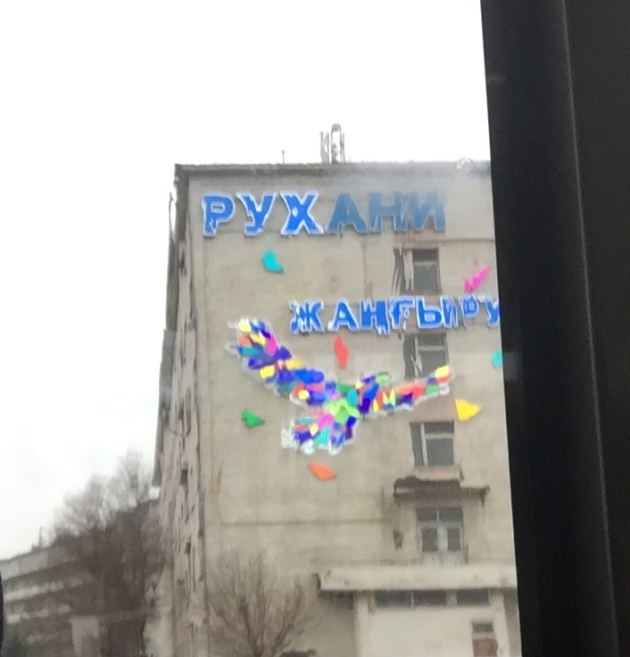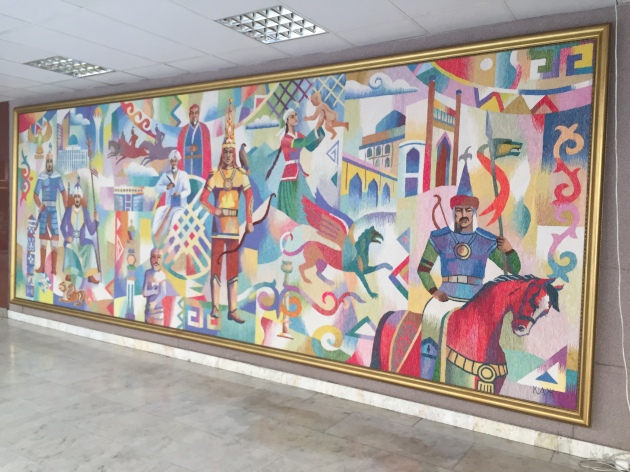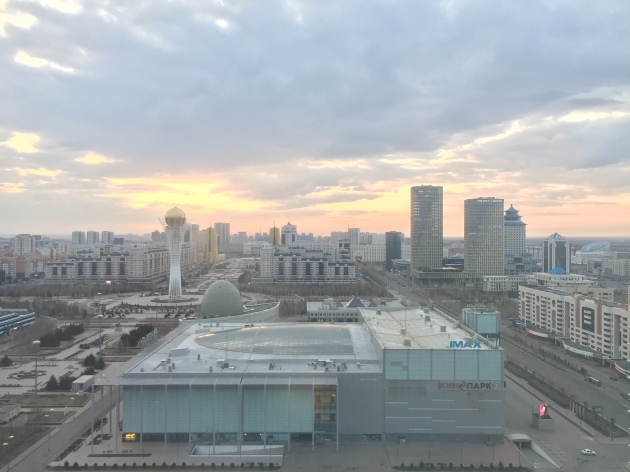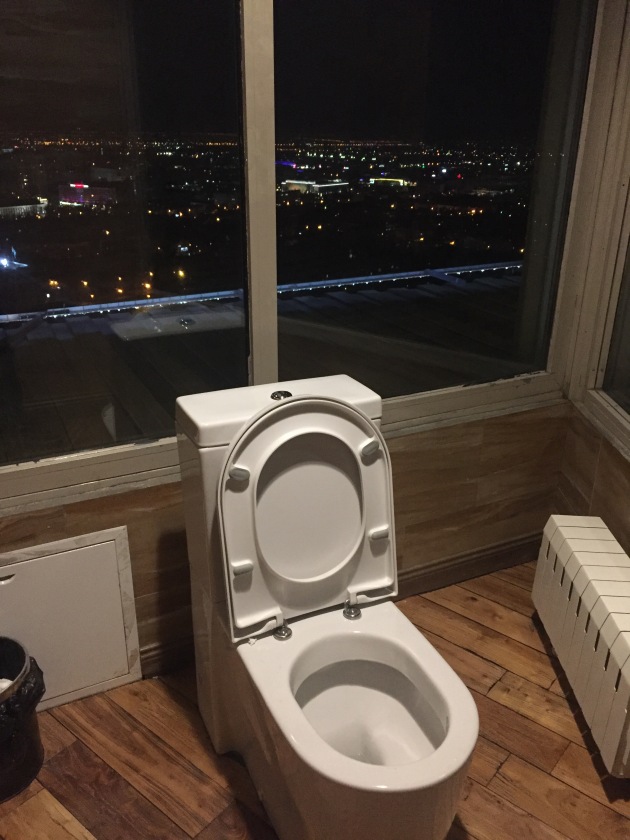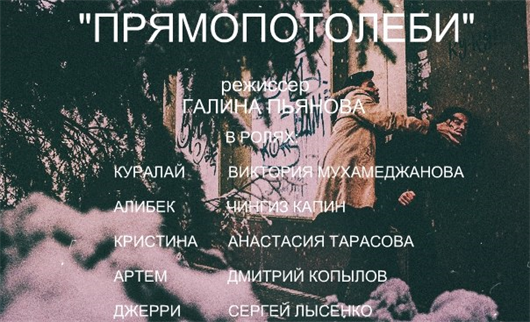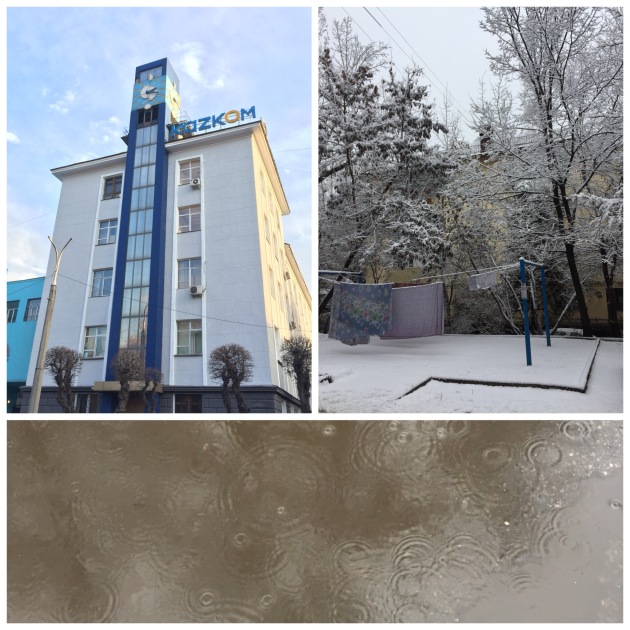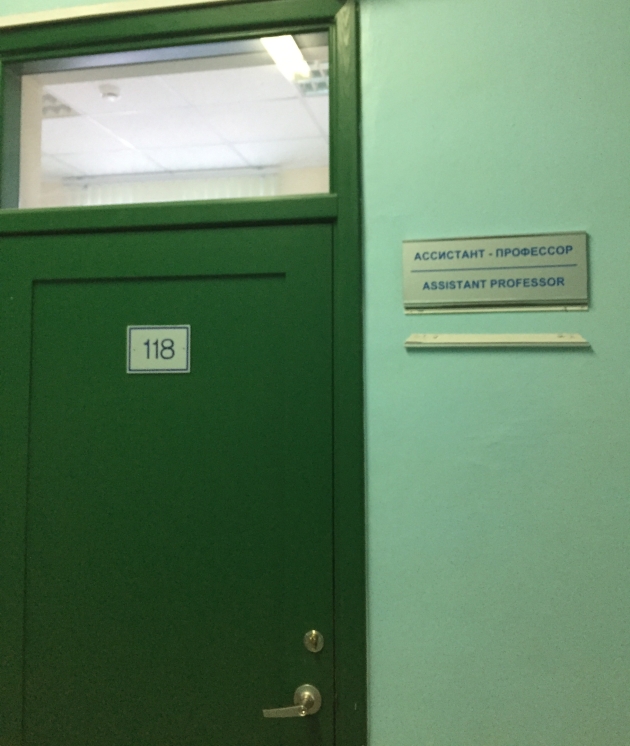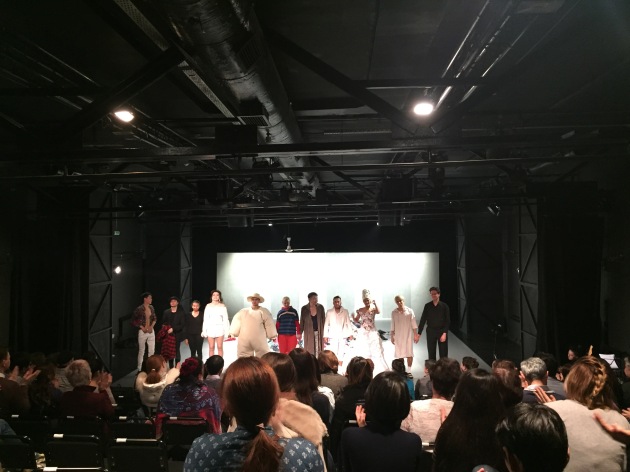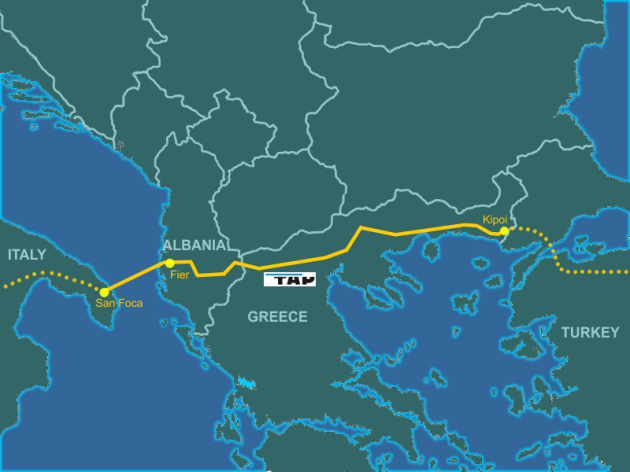Almaty, Kazakhstan
I said nothing about 2019, although it was an eventful year. I’ll probably say very little about 2020 here too. But here’s my first-ever article in Russian, which came out a couple of weeks ago.
16 декабря в Казахстане отмечали День независимости. На фоне официальных празднований из года в год проходят и акции оппозиционно настроенных граждан — потому что именно с этой датой связаны два важнейших события в истории современного Казахстана, которые сопровождались кровавыми столкновениями и жертвами: декабрьские события 1986 года в Алма-Ате (известные в Казахстане как «Желтоксан», т.е. просто «декабрь») и расстрел бастующих нефтяников в Жанаозене (2011). Наиболее активными участниками нынешних протестных акций стало новое молодежное движение «Оян, Казахстан!» («Проснись, Казахстан!»).
[… the article features an introduction by editor Denis Bilunov, before continuing with my reportage from Almaty]
Желтоксан 2019: какофония активистов
В этом году оппозиция отмечала День независимости Казахстана разрозненными усилиями. По меньшей мере четыре группы активистов организовали пикеты и митинги вокруг площади Республики (известной также как «Новая площадь»), напротив главного административного здания Алматы, крупнейшего города в Казахстане. Первая акция началась на углу улиц Сатпаева и Желтоксан, у памятника «Рассвет свободы». Всего в ста метрах, у монумента Независимости собирались другие группы.
За несколько минут до полудня один из сторонников движения «Демократический выбор Казахстана» (ДВК) выступил с речью, противопоставляя честность своего лидера Мухтара Аблязова «семье Назарбаевых, которая украла все из этой страны». Его единомышленники подхватили давно уже ставший известным лозунг «Шал, кет!» («Старик, уходи!»). По мнению многих, Назарбаев до сих пор сохраняет неограниченную власть над судьбой страны, несмотря на тот факт, что он подал в отставку в марте этого года.
Против активистов немедленно выступили враждебно настроенные к Аблязову люди — возможно, провокаторы. Крик стал усиливаться, пока разговор не перешел на тему этнических казахов в соседних провинциях Китая. «Восточный Туркестан – это не Китай», — сказал один из активистов, заявивший, что он не принадлежит ни к одной оппозиционной группе. «Сейчас двое наших людей преследуются здесь, в Казахстане, за то, что они незаконно пересекли границу, но они просто избежали жестоких репрессий со стороны Китая. Там власть хочет, чтобы наши люди стали китайцами». Эта проблема, действительно, существует, и правительству Казахстана нелегко балансировать в тонкой дипломатической игре с Китаем. Президент Токаев в своем недавнем интервью Жанне Немцовой (Deutsche Welle) заявил, что не верит в преследования этнических казахов в Китае, что вызвало возмущение многих в Казахстане.
Еще через десять минут, примерно в 12:10, на площадь прибыли активисты группы «Оян, Казахстан!», которые несли плакаты с лозунгами свободы политзаключенным и создания парламентской республики. Их митинг начался с минуты молчания в память жертв государственных репрессий в мирных демонстрациях 1986 и 2011 годов. «Оян» стала единственной группой, которая акцентировала прямую связь между бойнями 1986 и 2011 годов. Активисты обернули ладони красными лентами, символизирующими пролитую кровь, которая находится на руках власти.
На всех акциях присутствовали десятки так называемых Желтоксанцев. Это участники и свидетели событий 1986 года, которые хотят перемен, но не встали на сторону какой-либо конкретной группы.
Никаких арестов… сначала
Следующие два часа, после того как «Оян» и другие группы официально завершили свои короткие митинги, продолжались стихийные выступления и оживленные споры между собравшимися людьми. Однако, несмотря на видимое присутствие полиции, никто не был задержан. После того, как люди, связанные с ДВК, провели шествие от мемориала Желтоксану до центра площади, высокопоставленные сотрудники полиции объявили, что их акция не была согласована и ее участники могут быть подвергнуты административным штрафам. И все же не менее одного часа полиция воздержалась от вмешательства. Только после того, как около ста человек (из разных групп) решили пройти по улице Желтоксан до Старой площади, полиция начала активные действия. Когда демонстранты попытались прорвать оцепление, было задержано около 40 участников акции, большинство из них отпустили через несколько часов.
В Нур-Султане, столице страны, полиция арестовала более 50 человек, которые собрались слишком близко к Акорде, казахстанскому Белому дому. В других городах несколько человек были задержаны превентивно, среди них – журналист из Уральска Лукпан Ахмедьяров, который также годом ранее был задержан при аналогичных обстоятельствах.
По словам политолога Сергея Дуванова, 16 декабря власти «разыграли спектакль в двух актах», сначала воздерживаясь от разгона акций протеста, а затем задержав наиболее активных демонстрантов. Этот метод кнута и пряника — новая тактика власти. Он выглядит более либерально, чем массовые задержания превосходящими полицейскими силами, например, во время сентябрьской акции ДВК или во время президентских выборов в июне этого года. Кроме того, власть, похоже, смотрит сквозь пальцы на митинги, организованные «Оян», как это было 9 ноября, но не допустит никаких нарушений со стороны групп и отдельных лиц, связанных с заклятым врагом Аблязовым.
Партия будильников
Движение «Оян, Казахстан!» заметно отличается от традиционных оппозиционеров тем, что ориентируется, в первую очередь, на образованную молодежь. История движения, которое иногда иронически называют «партией будильников», началась с резонансной акции во время Алматинского легкоатлетического марафона в апреле этого года. Небольшая группа молодых людей вышла на улицу с плакатом «От правды не убежишь». Асия Тулесова и Бейбарис Толымбеков, которые держали плакат, были арестованы за хулиганство и приговорены к 15 дням тюремного заключения. Эта история стала непосредственным поводом для формирования группы «Оян, Казахстан!», которая впервые заявила о себе за несколько дней до президентских выборов 9 июня, и называет себя «горизонтальным гражданским движением» без лидеров.
Часть лозунгов свидетельствует о желании манифестантов вписать свою деятельность в глобальный исторический контекст: «no taxation without representation» (отсылка к войне за независимость США) или «қазір болмаса қашан» (по-казахски — «Если не сейчас, то когда», известная фраза из романа Примо Леви о сопротивлении Италии фашизму). На митинге 9 ноября одна из членов «Оян» держала плакат с надписью «OK boomer», популярным интернет-мемом, который используют миллениалы во всем мире, чтобы дать отпор унизительному отношению со стороны старшего поколения.
Хэштэг #менояндым («я проснулся») уже получил довольно широкую популярность в казахстанских соцсетях, и, возможно, именно поэтому власти заняли в отношении молодых активистов выжидательную позицию. После своего избрания президент Токаев сказал: «Я не отрицаю молодых ребят, которые вышли с хештегом #просниськазахстан или #япроснулся. Это движение в основном представлено молодыми креативными людьми».
full version at: https://theins.ru/spetsproekt-tsentralnaya-aziya/188868
